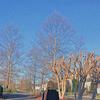It was the fourth grade, and I was sitting in my elementary school’s cafeteria. The eagerness in the room was evident because the exciting day was quickly approaching- Halloween. My friends discussed their unique costumes and plans to go trick-or-treating together. Through the anticipation, my friend asks me, “who are you gonna be for Halloween?” I replied, “Oh, I don’t celebrate it.” I felt that I was the only one left out on this mutual excitement.
“You don’t celebrate Halloween?!” I felt humiliated. I couldn’t help but think that she was right; at the end of the day, it seemed to be an enjoyable day of dressing up and eating candy. Why couldn’t I be a part of all the fun?
Five years later, I think back at this memory with the realization that many people are unaware of my beliefs. I have learned that as a Muslim in America, my values are often different from the majority. However, I believe that it is important for others to know so that our society can become more open to each other.
The Holy Prophet Muhammad (peace and blessings be upon him) founded Islam over 1400 years ago. Since then, many of the original teachings of Islam and of the Prophet have been interpreted in multiple ways.
I belong to the Ahmadiyya Muslim Community, which is a sect of Islam. The Community has been blessed with the guidance of a leader, His Holiness Mirza Masroor Ahmad. Our leader guides Ahmadi Muslims on what is right and wrong so that we are not conflicted about Islam’s perspective on contemporary issues.
On the subject of Halloween, His Holiness has said, “The reality of Halloween entails the belief in the existence of witches, evil spirits and satanic worship. Whilst people celebrate Halloween on the pretext of having ‘fun’, it is entirely wrong and dangerous to ‘believe in’ things that are supernatural for ‘fun’. Ahmadi Muslim children in particular should therefore avoid this. Even until recently, some villagers would offer something to children believing that it would save them from spirits. This also emboldens children to commit wrong acts for the sake of fun.”
The concept of Halloween has been around for centuries. It was originally celebrated by the Celts, who practiced Celtic Paganism. Called Samhain, the holiday marked the end of the summer harvest and the beginning of the dark, cold, winter- a time of year that was often associated with death.
On the night of Samhain, it was believed that the spirits of those who died would now roam the earth. Festivals occurred on this night; people danced around bonfires to keep evil spirits away and wore costumes consisting of animal heads and skins to disguise themselves from evil spirits.
Over centuries, the concept became influenced by many different groups, including the Romans and later the Christians. The holiday developed to become Halloween, known as the ‘night of the witch’. According to superstition, the devil and all his followers, witches, warlocks, and demons gathered.
The biggest sin in Islam is associating partners with God, called “shirk”. The holiest book of Islam, the Holy Quran says, “Say, ‘Call upon those whom you assert to be gods beside God. They control not even the weight of an atom in the heavens or in the earth, nor has He any helper among them’” (34:23).
This verse shows the only being with true power is God. His Holiness Mirza Masroor Ahmad has also said, “For us, the biggest matter is the bringing of dead spirits, as if, equal to God and thus committing shirk.” As Ahmadi Muslims, we do not believe that the dead can come back to life or have any power over us. This idea goes against our fundamental belief in the unity of God.
Since its origins, Halloween has evolved greatly. Many people can agree that the original meaning of Halloween is not the same reason as to why it is celebrated today, and the intention is solely to have fun.
However, when analyzing the answer as to why it is still celebrated even though its beliefs are not considered, many fingers can be pointed to capitalism.
A Forbes article from this past year stated that Americans were expected to spend $8.8 billion on Halloween. This includes purchasing costumes, decorations, candy, and more. It is clear to see that much of the excitement around this holiday has been amplified by businesses and retailers.
As Americans, we see only the surface of this holiday- the trick or treating, the costumes, and the thrills. Aside from this, we don’t see the imperialistic ideals that are promoted when purchasing costumes that were most likely made in sweatshops. We don’t see the tons of candy that are wasted while some children around the world struggle to eat three meals a day. We don’t see the privilege that first world countries enjoy while the rest of the world suffers.
The Holy Quran says, “...and eat and drink but exceed not the bounds; surely, He does not love those who exceed the bounds” (Holy Quran, 7:32). Islam preaches against spending excessive amounts of money on things that do not benefit us religiously. This verse means that Muslims should be modest in their spending and not purchase more than they can afford.
At a time like 2020, where the world suffers through a global pandemic, it may be time for Americans to rethink how we celebrate Halloween. All of these things considered, it is also important to remember that we should be social distancing and limiting contact with others as best we can. Having fun and partying isn’t worth catching and spreading a deadly virus.
As an American Ahmadi Muslim, my beliefs on Halloween happen to differ from many Americans. Although a global pandemic will undoubtedly make Halloween in 2020 much different, I hope that all those celebrating understand the beliefs of Muslims and Halloween.




